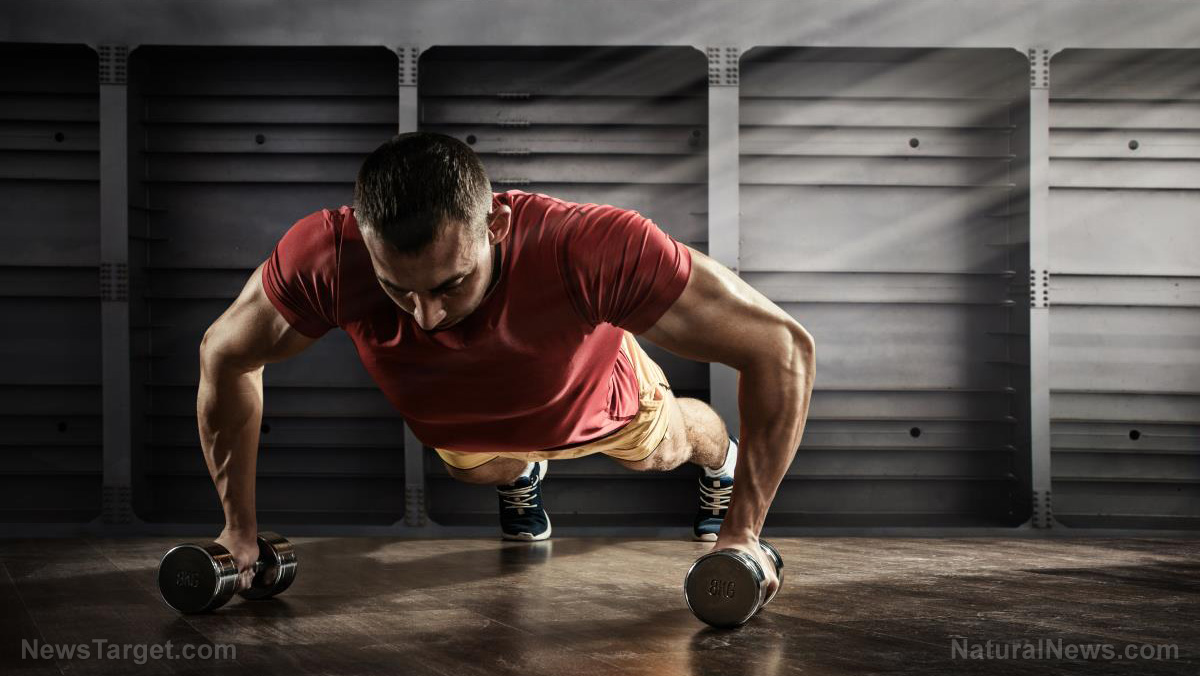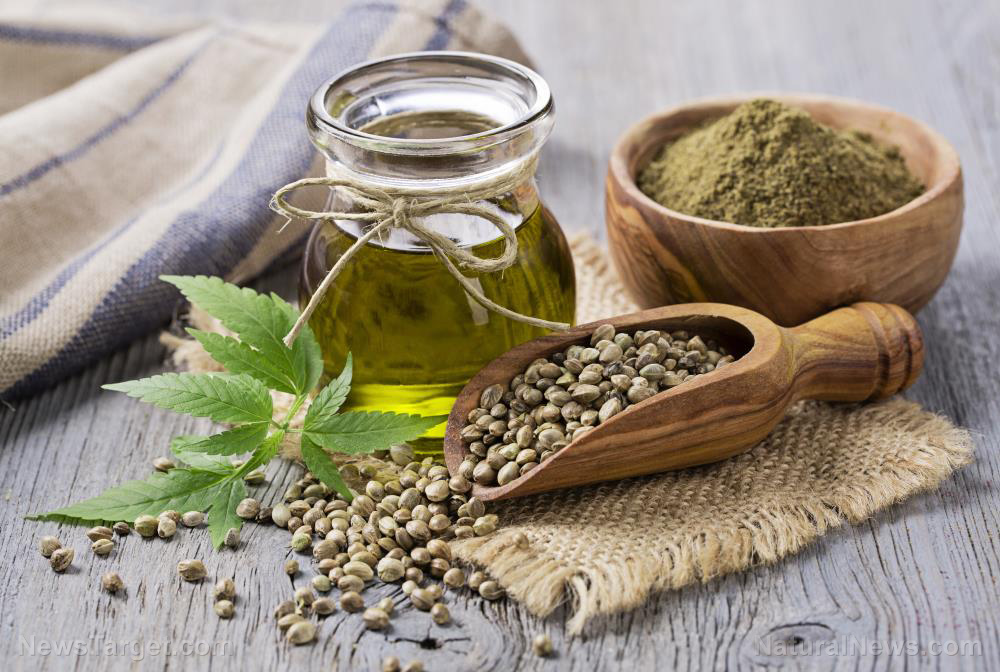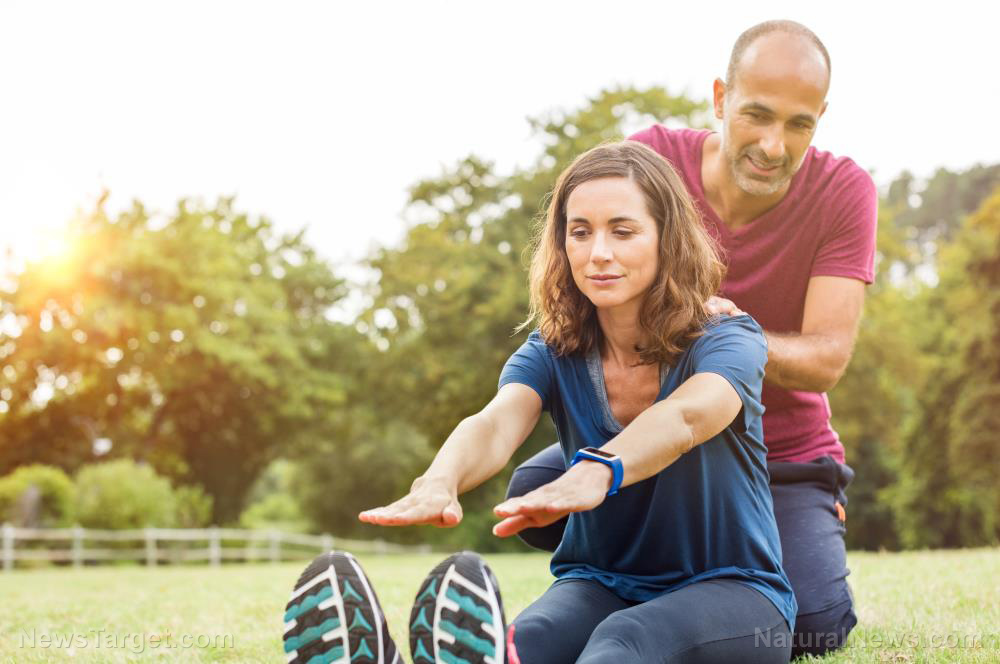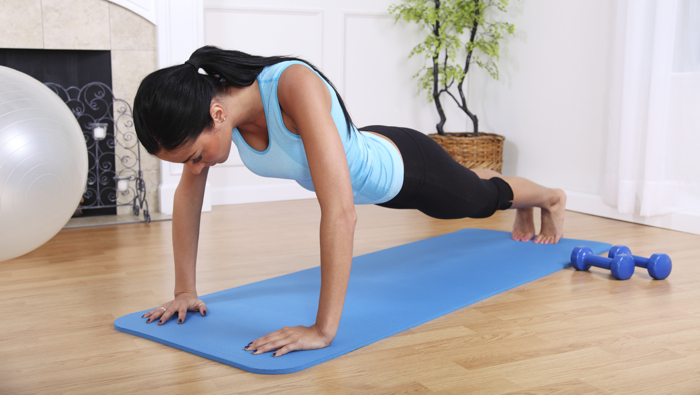Strength training can make you live longer
11/08/2018 / By Michelle Simmons

It is not news that exercising can help you stay healthy, reduce your risk of diseases and prolong your life. However, just doing aerobic exercise, such as walking or jogging, is not enough to keep you strong and healthy. You also have to do strength training exercises to keep yourself from becoming weaker and less functional as you get older.
Strength training is crucial to maintaining the ability to perform the most ordinary daily activities and keeping an active and independent lifestyle, especially in people aged 50 and older. It helps you build stronger muscles, improves overall fitness, increases lean body mass, burns more calories, strengthens bones, and improves mental health.
This type of exercise involves free weights, ankle cuffs and vests of different weights, resistance bands of different lengths and tension for flexing the arms and legs, and exercises that use your body weight to create resistance against gravity. (Related: Elderly women who do resistance training have stronger muscles and are less frail.)
For beginners, a resistance training workout takes at least 20 minutes. The key to resistance training is having a well-rounded program that involves exercises done with good form and being consistent. Within four to eight weeks of doing this kind of exercise, you will notice an improvement in strength. Start slow to avoid injuring yourself. Normally, you may experience mild to moderate muscle soreness between workouts, but if it persists for more than a few days, back off.
To get started, you can buy your own equipment. Sets of basic introductory-weight dumbbells cost between $50 and $100. You can also go to health clubs where equipment is available for use if you pay monthly fees. Reading books and watching videos can also help you learn some basic moves and start developing a routine. Strength training classes are also offered in many senior centers and adult education programs.
Four types of exercise to keep you healthy
There are four types of exercise recommended to achieve optimal health: strength training, aerobic exercise, balance exercises, and flexibility exercises. Each type is important in its own way, and doing all types is a great way to reach your maximum fitness potential and prevent injury.
Unlike strength training exercises, which increase lean mass, aerobic exercises work your heart, lungs, and circulatory system by increasing your heart rate and making you breathe harder. Aerobic exercises include brisk walking, running, swimming, or dancing, among others. This type of exercise can lower your risk of cardiovascular disease, Type 2 diabetes, high blood pressure, and even cancer.
Balance exercises, which help prevent falls, are especially important for older adults because balance gets worse with age. It can also benefit everyone, including people who have gained or lost a lot of weight or those who are pregnant. This type of exercise enhances your ability to control and stabilize your body’s position. Balance exercises include standing on one foot, heel-to-toe walk, and tai chi.
Lastly, flexibility exercises are important as they stretch your muscles and may enhance your range of motion at the joints. Flexibility allows you to move more freely for your daily activities. It also helps you perform other exercises, like strength training.
This type of exercise can enhance flexibility and lower the risk of injury, especially during sports and other physical activities. Flexibility exercises include shoulder and upper arm stretch, calf stretch, and yoga.
Combining all four exercises
Including all four types of exercise in your workouts does not mean you have to do four separate routines. You can combine two or more exercises together, such as strength and balance training. Some workouts already incorporate two or more exercises, like yoga which incorporates strength, flexibility, and balance exercises.
Read more news stories and studies on the benefits of exercise and fitness by going to Slender.news.
Sources include:
Submit a correction >>
Tagged Under:
exercise, fitness, longevity, prevent injury, resistance training, slender, strength training, workout
This article may contain statements that reflect the opinion of the author
RECENT NEWS & ARTICLES
COPYRIGHT © 2017 MENS FITNESS FOCUS




















